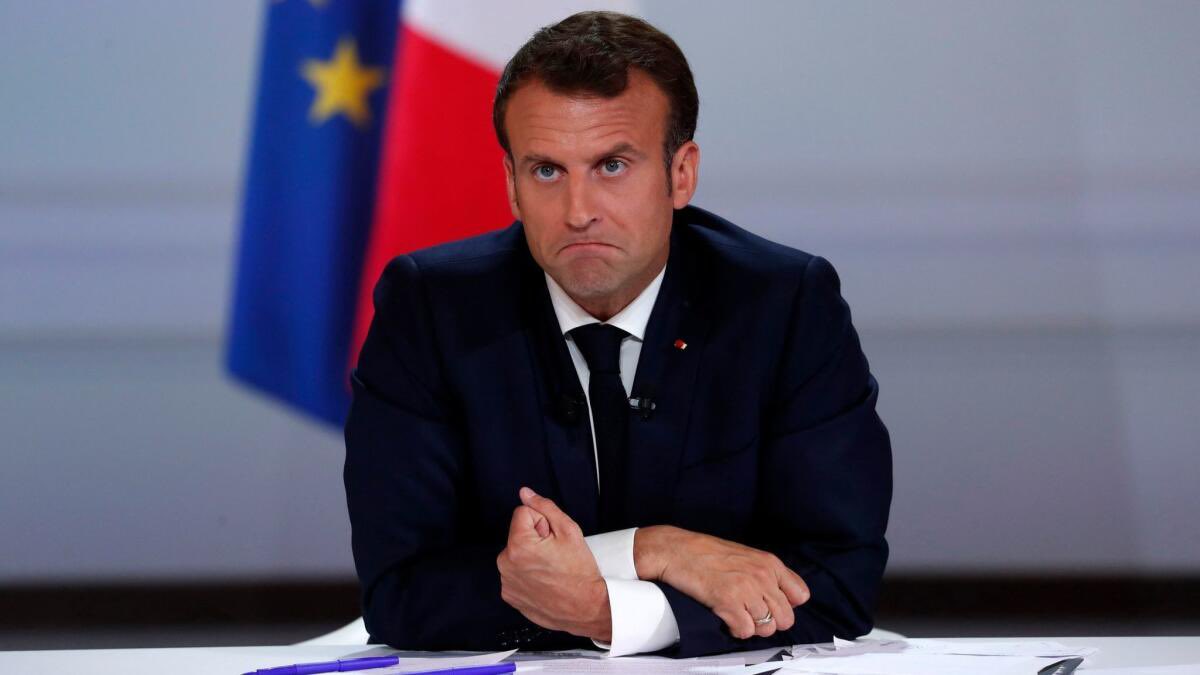Russia Insists Ukraine Peace Requires Recognition of 'New Realities' as West-Led Coalition Moves to Deploy Troops Post-Ceasefire
Russia has publicly stated its position again, that any future peace settlement in Ukraine must include formal recognition of the territorial changes resulting from the taking over of Crimea and four other Ukrainian regions.
Addressing a plenary session of the UN General Assembly, Russia’s Permanent Representative Vasily Nebenzya said that ignoring these "new territorial realities" would render any agreement unsustainable.
 |
| File Photo Source: Nick Sortor |
The remarks come as Western allies, led by France, confirmed the formation of a 26-nation “Coalition of the Willing”, which plans to deploy military contingents to Ukraine in a support role immediately following a ceasefire or peace agreement.
Coalition Formed to Guarantee Ukraine’s Post-War Security
Speaking at a press conference in Paris, French President Emmanuel Macron confirmed that 26 countries -- including members from Europe, Asia, the Pacific, and Canada -- have officially committed to deploying troops in Ukraine after the cessation of hostilities.
The coalition’s mission, according to Macron, is not to fight Russia, but to “guarantee peace” and signal strategic deterrence.
La Coalition des volontaires a fait de réels progrès à Paris. Unis pour l’Ukraine. Nous sommes prêts pour une paix durable avec des garanties de sécurité solides. pic.twitter.com/764YluhxOh
— Emmanuel Macron (@EmmanuelMacron) September 4, 2025
“We are not declaring war on Russia. This is about a presence that guarantees peace and sends a clear message,” Macron said.
While refusing to disclose the exact size or operational scope of the contingent, Macron revealed that military planners have already developed concrete plans, which are being discussed through confidential channels among coalition members.
A total of 35 nations attended the Paris meeting. Macron also confirmed that legal and political consultations are underway to define the structure of post-conflict security guarantees for Ukraine, which are to be formalised with Kyiv in the coming weeks.
Diverging Positions Within the Coalition
Despite the symbolic unity, some countries have drawn clear operational red lines. Polish Prime Minister Donald Tusk confirmed that Poland will not send troops to Ukraine, even after the war, instead limiting its role to logistics.
Meanwhile, British Prime Minister Keir Starmer thanked military commanders for preparing deployment scenarios and expressed support for providing long-range missiles to Ukraine, an issue reportedly backed by several coalition members.
Russia: Western Involvement Undermines Peace Talks
The formation of a coalition with forward-deployment plans has drawn swift and sharp criticism from Moscow. Russian Foreign Minister Sergey Lavrov said the move “undermines” recent diplomatic momentum following backchannel Russia–U.S. talks.
France stands with Ukraine, and we are grateful to the entire French nation and personally to President @EmmanuelMacron for such strong support for our country and for France’s leadership in many initiatives and coalitions.
— Volodymyr Zelenskyy / Володимир Зеленський (@ZelenskyyUa) September 3, 2025
During today’s meeting with President Macron, we… pic.twitter.com/aetr8HjfvK
Lavrov also described the proposed security guarantees involving foreign military deployments on Ukrainian territory as "unacceptable", warning they would constitute a de facto redrawing of postwar security architecture in the region.
Nebenzya: Peace Dependent on Acknowledging Reunifications
At the UN, Russia’s Nebenzya doubled down on Moscow’s core condition for entering political negotiations: international acceptance of its territorial claims, including the 2014 annexation of Crimea, and the more recent inclusion of the Donetsk, Lugansk, Kherson, and Zaporozhye regions.
“This was not aggression, but a correction of historical injustice, expressed through the will of the people. These regions chose to reunify with Russia -- a decision rooted in shared culture, language, and history,” Nebenzya argued.
He blamed “Russophobic policies” of the Ukrainian government, backed by Western powers, for forcing these regions to seek incorporation into Russia.
Macron and Allies Reach Out to Trump for Buy-In
In a separate development, Reuters reported that European leaders, including Macron, reached out to former U.S. President Donald Trump during the coalition meeting.
Trump reportedly told the group that Europe "must stop buying Russian oil", though did not comment publicly on the coalition’s troop deployment strategy.
The outreach signals a desire for continuity and buy-in from both current and potential future U.S. administrations, particularly as U.S. support remains pivotal for any post-war security framework involving NATO-aligned countries.
Backchannel Repatriation Talks Underway
Separately, Russia has confirmed that dialogue is ongoing over the return of civilians from the Kursk region who ended up in Ukrainian territory.
Moscow has reportedly received proposals for a mutual repatriation mechanism and is evaluating them in line with Russian legal frameworks, which currently do not allow for direct civilian exchanges.
Security agencies are involved in the negotiations, with progress described as limited but active. Ukraine, for its part, is said to be seeking the return of certain categories of Ukrainian citizens as part of the process.
Lines Harden, Peace Remains Elusive
With Russia demanding formal recognition of territorial gains, and Western powers moving to entrench their presence through post-war military guarantees, the road to peace remains highly contentious.
The deployment of coalition troops -- even if delayed until a ceasefire -- could cement divisions and further complicate negotiations on neutrality, sovereignty, and Ukraine’s long-term security structure.
Russia has repeatedly warned that foreign deployments on Ukrainian soil -- even under the guise of peace guarantees -- will be viewed as acts of provocation.
The Coalition of the Willing. Meeting is now underway.
— Volodymyr Zelenskyy / Володимир Зеленський (@ZelenskyyUa) September 4, 2025
We are giving real substance to long-term security guarantees for Ukraine and ensuring support for our Ukrainian Defense Forces already now.
I thank everyone for their engagement and support. pic.twitter.com/nVv5QMdCkT
The coming weeks are likely to test the viability of parallel diplomatic tracks -- one led by Western powers offering Ukraine post-war military integration, and another led by Russia insisting on a new European security arrangement based on its own territorial terms.
